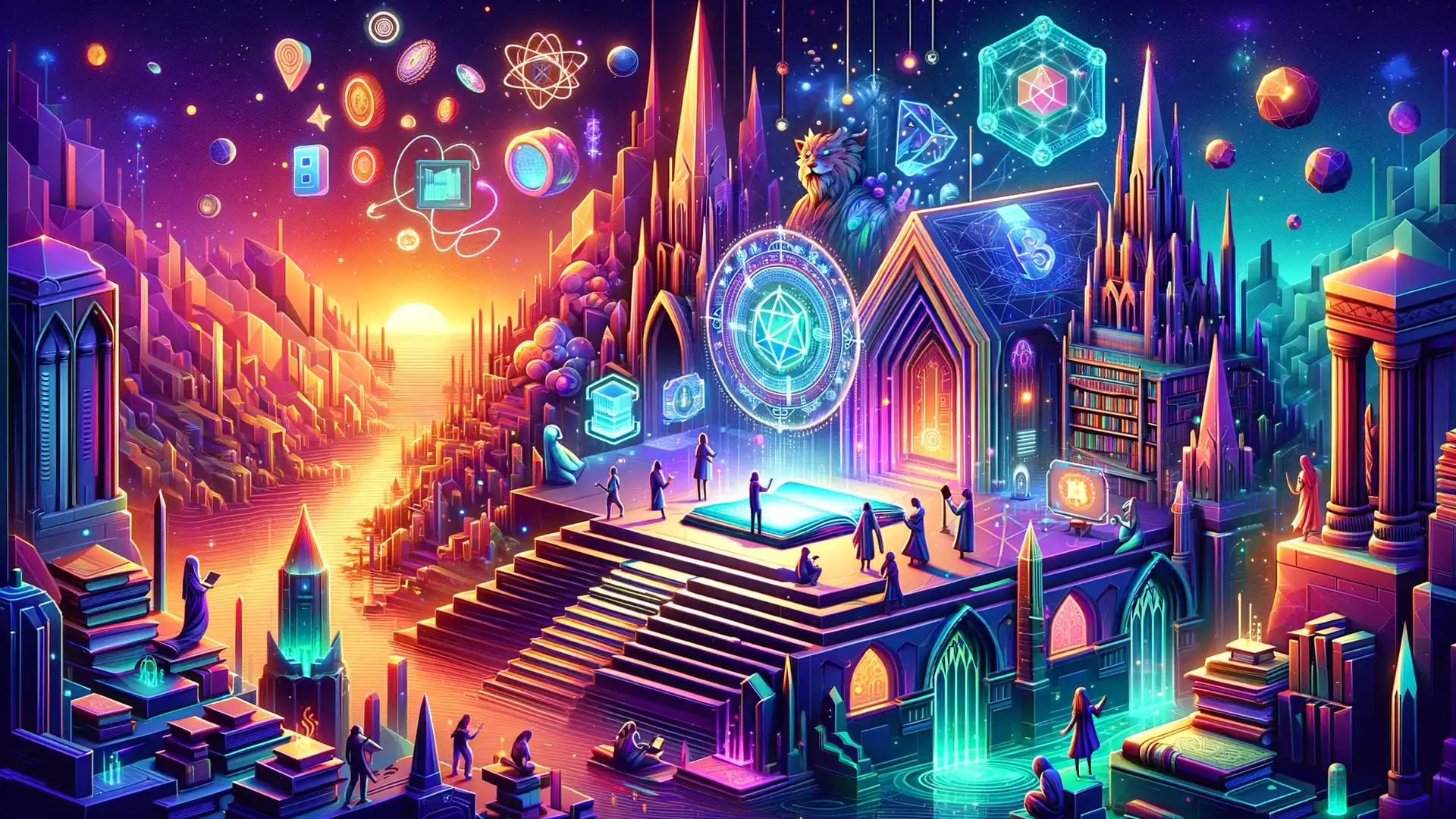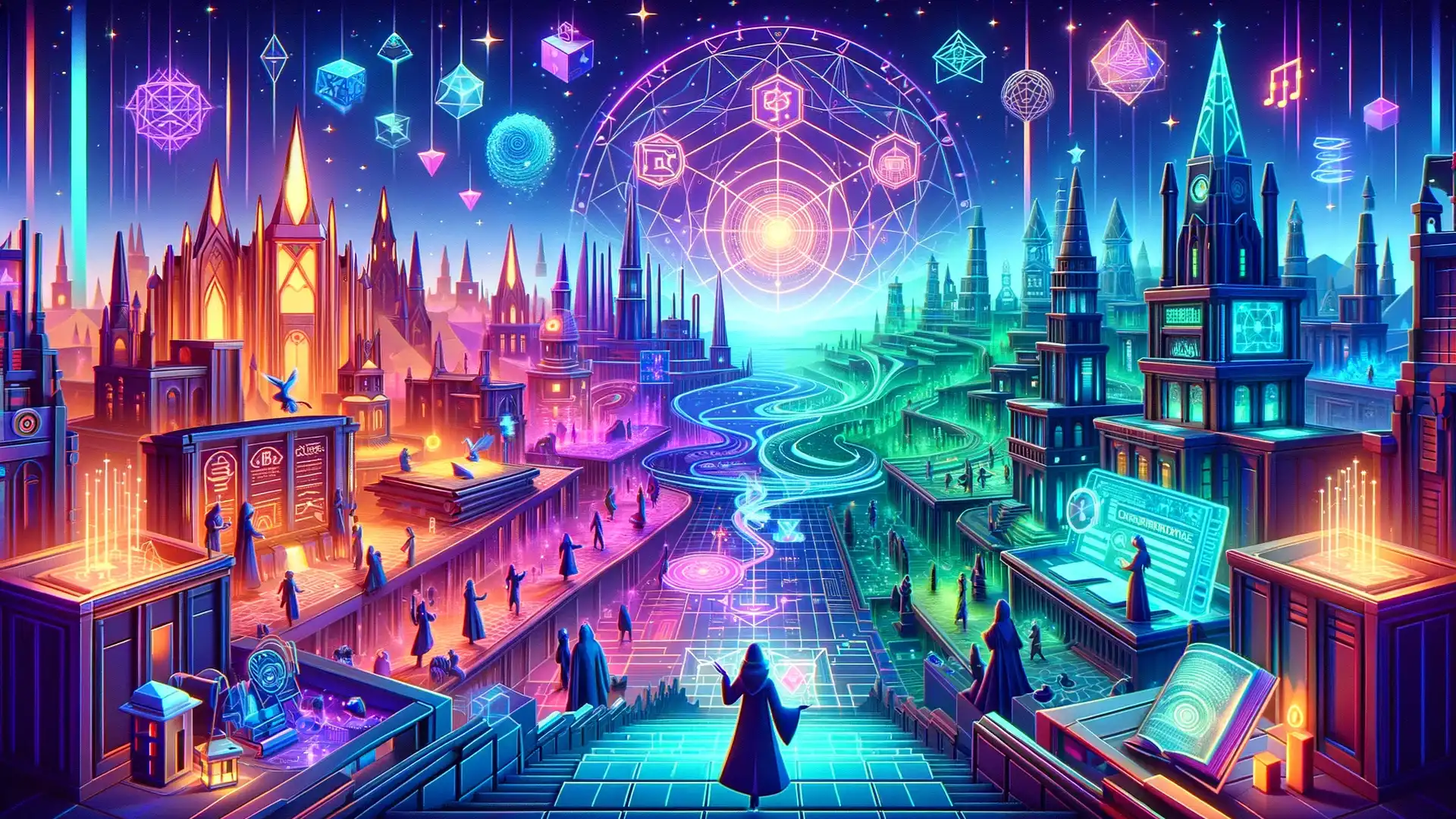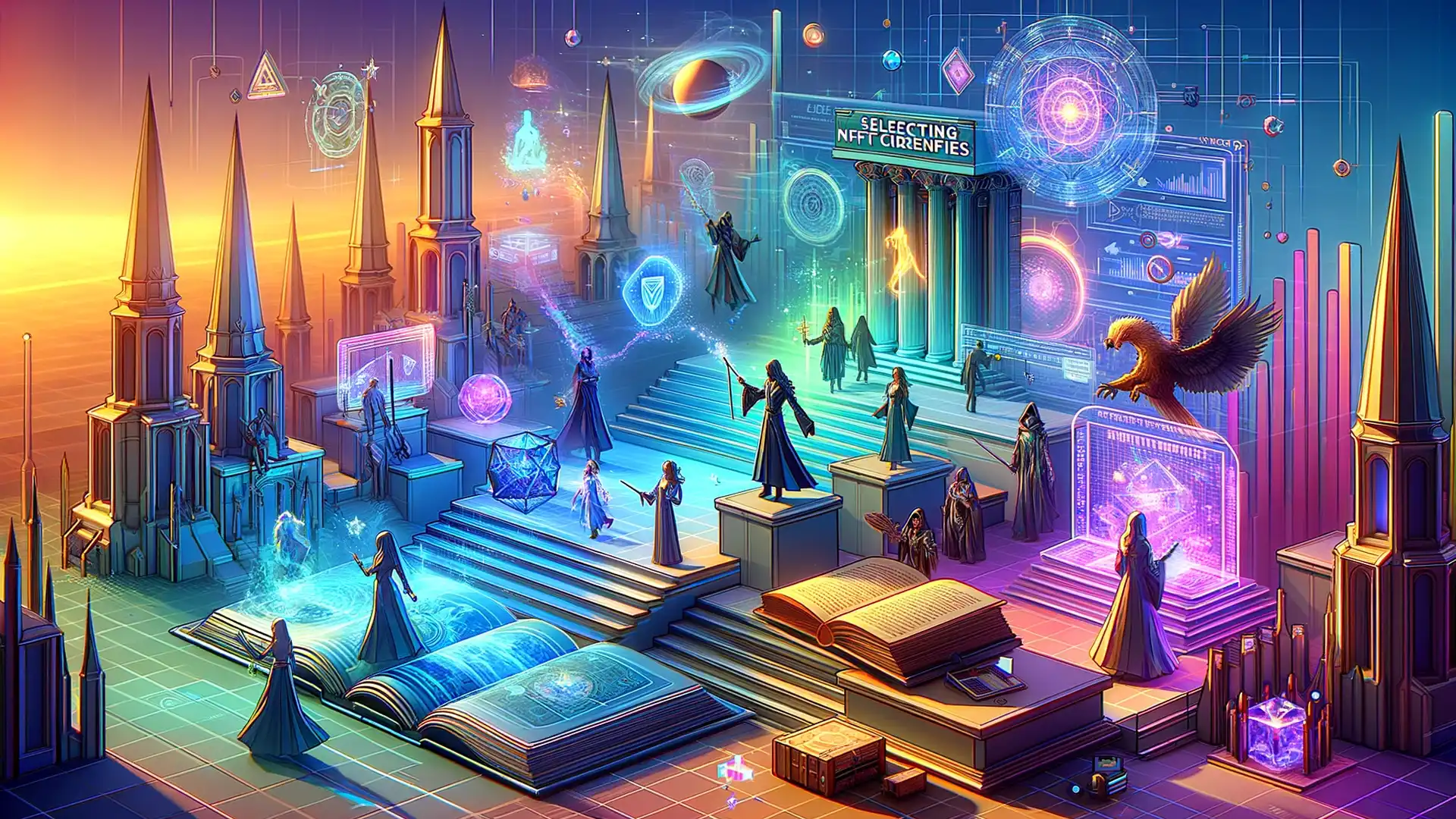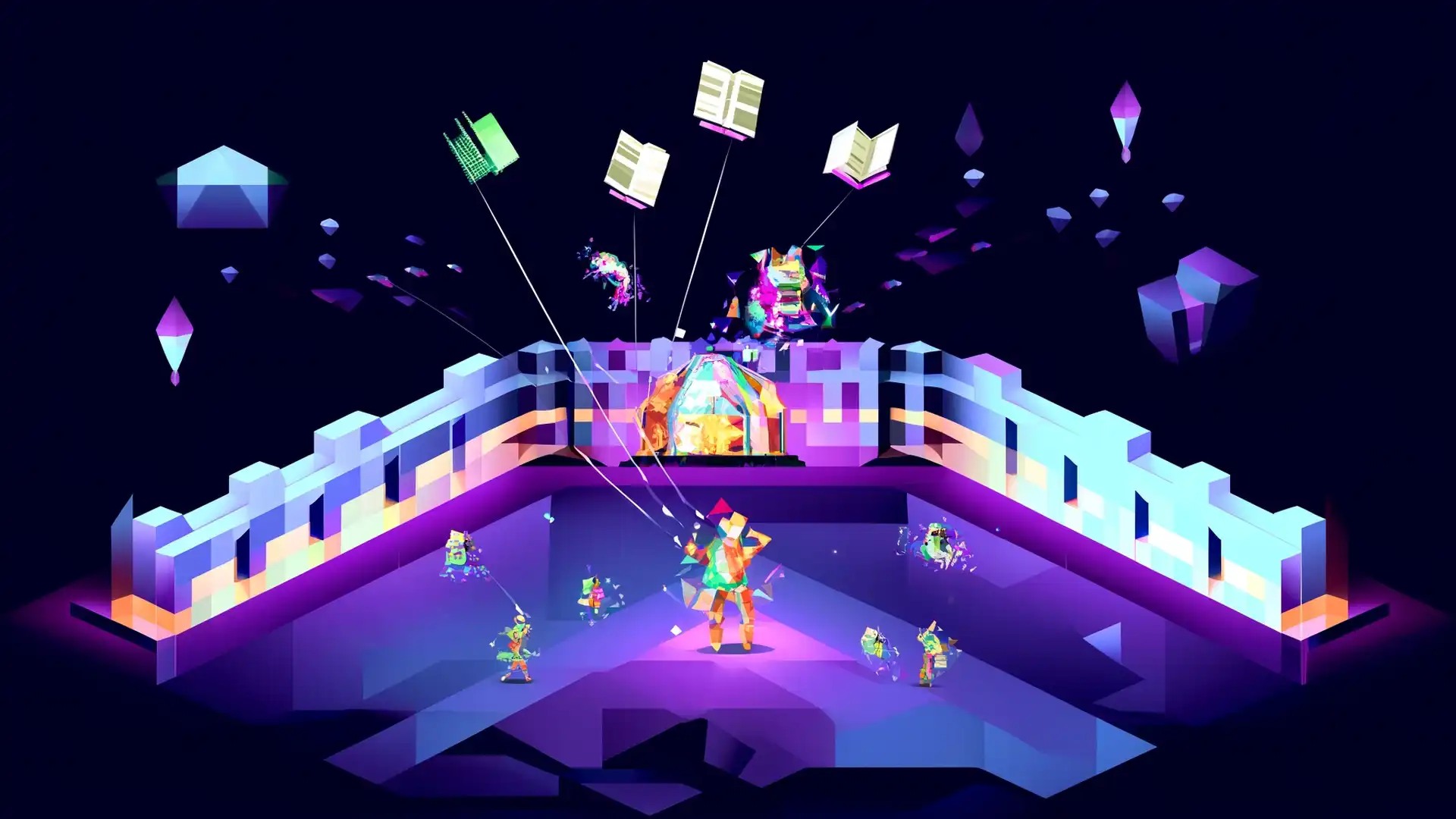Types of NFT Credentials: Which One to Choose and Why?

 Author:
Artem Grigoriev
Author:
Artem Grigoriev
Navigating the NFT Credential Landscape: Types and Applications
Imagine a world where your most precious certificates, licenses, and personal belongings are digital . They are distinctly yours, beyond dispute, and forever secure. This scenario is becoming a reality with the advent of Non-Fungible Tokens (NFTs) for credentials. Unlike cryptocurrencies such as Bitcoin, NFTs are unique. Each token possesses unique characteristics and cannot be exchanged one-for-one with another. They range from vital educational certificates to creative applications, including owning virtual real estate, redefining ownership, and verification of possessions as we transition towards a more digital existence.
📘 This article complements: "The Complete Guide to NFT Credentials". Explore it to find answers to all your questions;)
Starting with educational credentials, NFTs bring a new level of security (protecting against unauthorized access) and efficiency (simplifying processes) . They are used in academic records. Utilizing blockchain technology , educational institutions can now issue diplomas and certificates that are nearly impossible to counterfeit. This technology secures records in a way that makes them extremely difficult or impossible to alter, hack, or cheat.
A prime example is the University of Melbourne’s pioneering use of blockchain . It secures diplomas and highlights the practical uses and clear advantages of NFTs in safeguarding academic achievements. This innovation is revolutionizing credential management , enhancing transparency, and significantly reducing administrative burdens. Imagine a future where accessing your diploma is as easy as accessing your email. It is secure and globally recognized. The ease of access and global acknowledgment of NFT-based academic records could enhance international study opportunities and foster academic cooperation across countries.
In the realm of professional licenses, the decentralization introduced by NFTs is changing the game, enhancing career mobility for professionals such as doctors, engineers, and lawyers. These professionals often face lengthy processes to verify their credentials in different regions. NFTs simplify this by enabling real-time validation and updates to licenses, ensuring consistency and compliance across various regions. This not only enhances professional mobility but also ensures adherence to regulatory standards with ease.
The worldwide potential for decentralized professional licensing could significantly lower barriers to practicing in multiple regions. A recent study by MIT’s Digital Currency Initiative highlighted these developments, which could lead to a more interconnected global workforce and enhance the flow of skills across national boundaries.
Event tickets as NFTs offer an exciting advancement in how we experience and remember events. This technology provides a more secure and engaging ticketing experience. Each ticket can offer more than just entry; it can include items like memorabilia, backstage access, or special discounts. This tokenization helps eliminate common issues such as scalping and fraud, ensuring a more genuine and enjoyable event experience for all.
For example, platforms like Ticketmaster are exploring NFT-based solutions to increase fan engagement and combat fraud. These could potentially transform the entertainment experience, making it richer and more personal, and changing how event organizers interact with and reward loyal participants.
💡 Note: NFTs stand out by providing a blend of security, permanence, and flexibility. This is revolutionary in managing digital and creative assets.

The chapter also explores how NFTs are transforming the creative industries . For artists and creators, NFTs provide greater control over their works and enable direct, transparent interactions with their audience. This digital shift is particularly significant in owning virtual assets, like land in online platforms, enabling new forms of development and revenue generation within virtual economies.
Creators gain the autonomy to manage their rights and incomes more independently, marking a significant shift in how artistic work is valued and traded in the digital era. As a result, NFTs may lead to more sustainable revenue models for artists, moving towards a fairer and more direct economic environment for the creative sectors.
Beyond these familiar uses, NFTs are advancing in areas such as gaming, health records, and personal identity documents. In gaming, NFTs allow players to own and trade in-game items that hold real-world value outside the gaming platform. This greatly enhances the gaming economy and player engagement. Successful games like Axie Infinity demonstrate where players truly own their in-game assets.
For health records and personal identity, NFTs enhance security and make sensitive information both more accessible and more private. This is a crucial improvement for securely and efficiently managing personal data. The role of blockchain in securely handling electronic health records is discussed in a study from the Harvard Business Review , highlighting its potential to transform healthcare data transactions. The integration of NFTs for personal identity documents and health records could revolutionize how personal data is stored, shared, and protected , offering new solutions to privacy challenges in the digital age.
This chapter has illustrated the diverse and significant roles NFT credentials are playing. They are reshaping various industries, simplifying the verification of qualifications, enabling new forms of digital interaction and ownership, and showcasing the vast, still largely untapped potential of NFTs.
💡 Tip: When considering integrating NFTs into your business or personal life, think about their long-term benefits. These include security, efficiency, and innovation. Evaluate how they could enhance or transform your existing systems and practices. This is an essential consideration for forward-thinking businesses and individuals aiming to stay competitive and secure in a rapidly evolving digital landscape.

Making the Right Choice: Considerations and Future Outlook of NFT Credentials
Deciding to integrate NFT credentials into your professional or personal life involves more than just following trends. It's about strategically enhancing how you or your organization operates in a digital-first world . This chapter provides guidance on selecting the right NFT credentials, focusing on strategic factors like career enhancement, authenticity verification, and event exclusivity.
For professionals seeking career advancement, NFTs offer a significant edge. They serve as immutable records (permanent records that cannot be altered) of achievements and certifications that may open up global job opportunities. It is crucial to select NFT platforms recognized within your industry to ensure your digital credentials are valued. The choice of platform can greatly influence how your professional background is perceived by potential employers or professional networks.
Making this decision is vital for your career progression. Choosing with the insight of industry experts can be very beneficial. These insights are highlighted in the informative annual Blockchain in HR Trends Report . It evaluates the credibility and impact of various blockchain solutions in professional contexts. An informed decision ensures that your digital credentials are respected and recognized worldwide, aiding in career growth and mobility .
In the arts and creativity sector, NFTs play a crucial role in protecting intellectual property. They allow artists and creators to maintain control over their work and ensure they receive the earnings and recognition they deserve. This chapter delves into encryption and blockchain verification processes that secure data and verify the authenticity of digital files, offering robust protection against forgery and unauthorized distribution.
For artists, this means securing their work and potentially transforming their interactions with their audience. The Artists Rights Society recognizes the importance of NFTs in safeguarding creators' rights and boosting their market presence. This shift not only benefits artists financially but also enriches the cultural landscape, ensuring creators can continue to produce innovative works without fear of misappropriation.
💡 Note: The combination of NFT technology with AR and VR is creating immersive experiences. These could become the new frontier for digital interactions, offering more than just ownership but a complete virtual presence.

Event-based NFTs are transforming how exclusivity and engagement are managed in the entertainment industry. These tokens can offer unique experiences, such as VIP access or special content, making them highly appealing to event organizers and attendees alike. The chapter also addresses the resale aspects of these NFTs, discussing both the opportunities and the legal and ethical considerations involved.
Research from Event Industry News illustrates how NFTs are becoming an essential part of modern ticketing strategies. They reduce fraud and enhance customer satisfaction. The use of NFTs in this area not only improves the attendee experience with personalized and exclusive offerings but also fosters a more secure and efficient market for ticket sales and transfers.
Looking ahead, the integration of NFTs with cutting-edge technologies like augmented reality (AR) and virtual reality (VR) is set to redefine their applications. The potential for expanding NFT usage into sectors like real estate and healthcare suggests a broadening landscape that could revolutionize numerous industries. This chapter explores these trends and the possible regulatory changes that might affect the market, preparing you for the future implications of adopting NFT credentials.
Reports from leading technology forecasters, such as Gartner , suggest that merging NFTs with AR and VR will not only enhance user engagement but also open new revenue streams in these sectors. Such innovations could lead to groundbreaking changes in how we interact with and manage digital assets, providing enhanced functionalities that extend beyond mere ownership to immersive, interactive experiences.
In conclusion, when considering NFT credentials, it's essential to evaluate factors such as technical compatibility, legal frameworks, market trends, and alignment with your personal or organizational goals. This chapter provides strategies for the effective implementation and management of NFTs, equipping you to make informed decisions that promote long-term success. These insights are crucial for navigating the evolving landscape of digital credentials, helping you to use NFTs in ways that maximize personal and organizational benefits.
💡 Tip: Regularly update and review your understanding of NFT standards and regulations. Stay current with technological progress and changes in the legal environment. This proactive approach will help you maintain a leading position in the dynamic field of digital credentials, enabling you to capitalize on emerging opportunities and effectively manage potential risks.

Step-by-Step Guide to Creating, Issuing, and Implementing NFT Credentials
What Is TTP (Trusted Third Party) and Why It's Essential for NFT Credential Verification
NFT and Blockchain in Education: How are they used and why?
Technical Requirements and Specifications for Creating, Issuing, and Implementing NFT Credentials in Education
Integrating NFTs into Educational Platforms and LMS Systems
